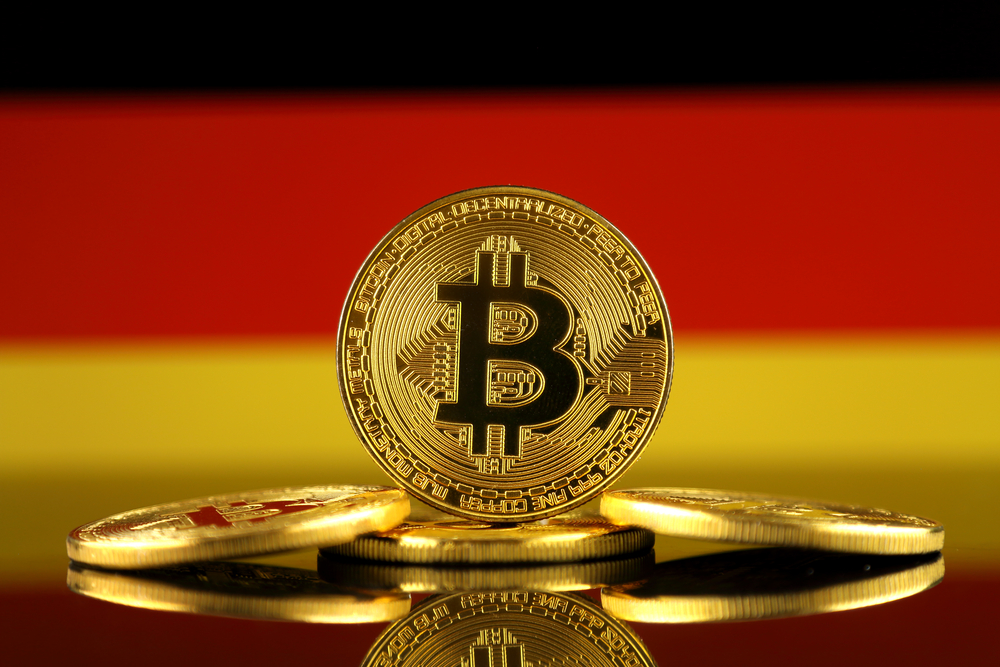German Leaders Criticized for Overlooking Bitcoin
19.12.2024 16:00 2 min. read Alexander Zdravkov
Donald Trump’s pro-cryptocurrency stance and his plan to establish a strategic Bitcoin (BTC) reserve have sparked widespread attention and discussions on a global scale.
While interest in Bitcoin continues to grow across various nations, French Member of Parliament Sarah Knafo has called for the European Union to create its own Bitcoin reserve. This suggestion follows the trend set by other countries, particularly the United States, which has taken a leading role in promoting cryptocurrency.
The idea gained further traction from former German Finance Minister Christian Lindner, who criticized Chancellor Olaf Scholz for neglecting Bitcoin in Germany’s financial strategy.
Speaking in the Bundestag, Lindner pointed out that the United States has emerged as a global leader in cryptocurrency-friendly policies, and he accused both the German government and opposition parties of overlooking the economic potential of Bitcoin.
Lindner expressed concern that key German leaders, including Chancellor Scholz, Economy Minister Robert Habeck, and Opposition Leader Friedrich Merz, were not acknowledging the growing significance of cryptocurrencies in the global economy. He argued that Germany was falling behind, especially in comparison to the US, which is positioning itself to benefit from Bitcoin’s potential.
Lindner also highlighted a missed opportunity in Germany’s past decisions, criticizing the government for selling significant amounts of Bitcoin at prices far below their current value. He noted that while the US is embracing Bitcoin to boost its economy, Germany risks losing out on the advantages that cryptocurrencies offer.
-
1
Metaplanet Now Holds 13,350 BTC Worth $1.4 Billion
30.06.2025 10:27 1 min. read -
2
Bitcoin Whales Accumulate as Long-Term Holders Hit All-Time High
03.07.2025 21:00 2 min. read -
3
Public Companies Outpace ETFs in Bitcoin Buying: Here is What You Need to Know
02.07.2025 12:30 2 min. read -
4
Arizona Governor Vetoes Bill, Related to State Crypto Reserve Fund: Here Is Why
02.07.2025 16:00 2 min. read -
5
Crypto Inflows hit $1B Last Week as Ethereum Outshines Bitcoin in Investor Sentiment
07.07.2025 20:30 2 min. read
Ethereum Sparks Altcoin Season as FOMO Shifts Away From Bitcoin
Traders are rapidly shifting their focus to Ethereum and altcoins after Bitcoin’s recent all-time high triggered widespread retail FOMO.
BSTR to Launch With 30,021 BTC, Becomes 4th Largest Public Bitcoin Holder
BSTR Holdings Inc. is set to become the fourth-largest public holder of Bitcoin, announcing it will launch with 30,021 BTC on its balance sheet as part of its public debut.
Altcoins Gain Momentum as Bitcoin Dominance Drops to 61.6%
The cryptocurrency market is experiencing a notable shift in capital flows as Bitcoin’s market dominance has dropped to 61.6%, marking a 2.36% decrease.
France Eyes Bitcoin Mining to Solve Surplus Energy Challenges
French lawmakers have introduced a groundbreaking proposal that would turn excess electricity from energy producers into a valuable digital asset—Bitcoin.
-
1
Metaplanet Now Holds 13,350 BTC Worth $1.4 Billion
30.06.2025 10:27 1 min. read -
2
Bitcoin Whales Accumulate as Long-Term Holders Hit All-Time High
03.07.2025 21:00 2 min. read -
3
Public Companies Outpace ETFs in Bitcoin Buying: Here is What You Need to Know
02.07.2025 12:30 2 min. read -
4
Arizona Governor Vetoes Bill, Related to State Crypto Reserve Fund: Here Is Why
02.07.2025 16:00 2 min. read -
5
Crypto Inflows hit $1B Last Week as Ethereum Outshines Bitcoin in Investor Sentiment
07.07.2025 20:30 2 min. read


